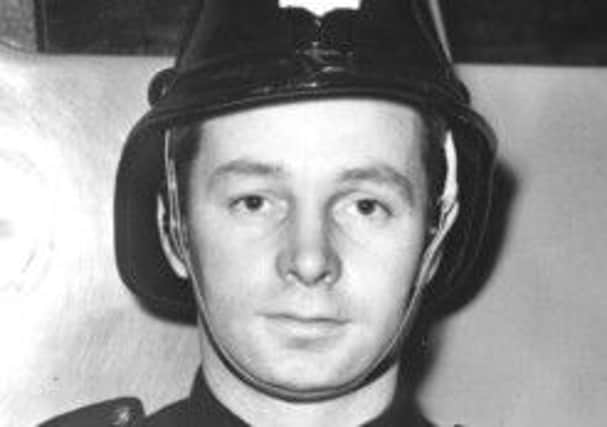Obituary: James Dunlop, firefighter


James Dunlop should never have been allowed into the Fire Service. In 1958 when he applied to join he did not meet the 5ft 7in minimum height qualification. The Leading Fireman taking his height noticed that he was stretching as high as possible. “Good for you,” said the LF, “A wee bit higher.” The extra stretch did the trick, and James Dunlop was admitted into the Fire Service where he would go on to receive the highest bravery award for firefighters and have a distinguished career in which he would become a Divisional Officer.
James Dunlop was a Glasgow Southsider. When he left school he worked briefly in his father’s shoe repair shop in Clarkston before entering national service in 1947 with the Royal Engineers.
Advertisement
Hide AdAdvertisement
Hide AdAfter the army he took jobs driving lorries and buses. It was while he was “on the buses” that he would regularly pick up firemen coming off duty from Springburn Fire Station. He was so taken with the “cheery bunch” that he decided a career in the Fire Service offered security and opportunity for a young married man – he had married Janet (Nettie) in 1953.
After three months’ training at the Scottish Fire Service College at Gullane, East Lothian, James Dunlop joined Glasgow’s busy South Fire Station to complete his two years’ probation. This ended on 27 March, 1960, the eve of the biggest disaster in the peacetime history of the British Fire Service. On his first day as a qualified fireman, James Dunlop and his colleagues were called out to what seemed to be a routine incident in the city centre: smoke was seen issuing from a whisky bond in Cheapside Street.
James Dunlop drove the turntable ladder into Warroch Street, which flanked the west side of the bond. In Warroch Street Dunlop’s colleague, William Watters, mounted the ladder, which was then extended so that Watters could direct water on to the bond.
As firemen searched for the source of the smoke there was an explosion. The blast blew out the walls overlooking Cheapside and Warroch Streets and the falling masonry killed 14 firemen and five members of Glasgow Salvage Corps.
The masonry also damaged the South’s turntable ladder and Watters was left hanging by his safety belt high above the street. Whisky barrels in the bond then rolled out of their racks and smashed open on Warroch Street, creating streams of burning alcohol which started to envelop the ladder.
Ignoring the flames surrounding him, James Dunlop extended the turntable ladder to its full height to release safety catches and then lowered Watters to the ground.
Both men made their way to safety as their turntable ladder was totally destroyed by the fire.
Six members of Glasgow Fire Service received bravery awards for their actions at Cheapside Street. James Dunlop was one of two who received the George Medal. His citation read: “Fireman James Dunlop displayed great personal courage by remaining at the controls of his ladder… and assisting Fireman William Watters to safety.”
Advertisement
Hide AdAdvertisement
Hide AdJames Dunlop viewed the Fire Service as a “golden opportunity to learn and teach”. To prepare for his sub officer’s practical exam he and Nettie would head to Lynn Park where he would practice shouting out commands while Nettie, in charge of the instruction book, would check that he was doing everything correctly.
Dunlop took correspondence courses in fire engineering and eventually became a member of the Institute of Fire Engineering – a source of great pride.
Five years after Cheapside Street, he became station officer in Greenock and was soon promoted to Assistant Divisional Officer in Paisley before transferring to the UK’s Fire Service College in Moreton in Marsh to run the breathing apparatus course. In 1971 he returned to the Western Area as Divisional Officer in Greenock and in 1986 moved back to Moreton for the last two years of his career, running a command and control course for Commonwealth firefighters.
James Dunlop’s courageous role at Cheapside Street attracted much media attention in 2010 when he attended the 50th anniversary commemoration of the disaster. He laid a wreath at the Firefighters’ Memorial at the Necropolis and was among the large congregation for a special service in Glasgow Cathedral.
James Dunlop is survived by Nettie and his sons, Douglas and David.